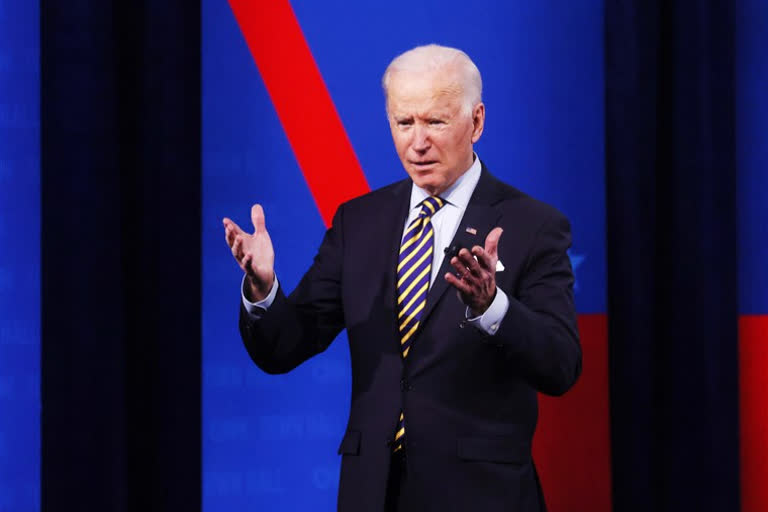Washington:Joe Biden will make his first big appearance on the global stage as president on Friday, offering Group of Seven allies and other foreign leaders a glimpse into his plans to dramatically reshape U.S. foreign policy even as he deals with several international crises that are coming to a head.
The State Department announced Thursday that the U.S. stands ready to rejoin talks about reentering the 2015 multilateral Iran nuclear deal abandoned by the Trump administration.
And White House officials said Biden would announce at the G-7 that the U.S. will soon begin releasing $4 billion for an international effort to bolster the purchase and distribution of coronavirus vaccine to poor nations, a program that Trump refused to support. Both the G-7 and the annual security conference are being held virtually because of the pandemic.
Biden’s turn on the world stage comes as the U.S. on Friday officially rejoins the Paris climate agreement, the largest international effort to curb global warming. Trump announced in June 2017 that he was pulling the U.S. out of the landmark accord, arguing that it would undermine the American economy.
Biden announced the U.S. intention of rejoining the accord on the first day of his presidency but had to wait 30 days for the move to go into effect. He has said that he will bake considerations about climate change into every major domestic and foreign policy decision his administration faces.
Read:|Biden rolling out plan for $4 billion global vaccine effort
His first foray into international summitry will inevitably be perceived by some as simply an attempted course correction from Trump’s agenda. The new president, however, has made clear that his domestic and foreign policy agenda won’t be merely an erasure of the Trump years.
“I’m tired of talking about Donald Trump,” Biden lamented earlier this week at a CNN town hall in Milwaukee.
The president on the campaign trail vowed to reassert U.S. leadership in the international community, a role that Trump often shied away from while complaining that the U.S. was too frequently taken advantage of by freeloading allies.
To that end, the White House said Biden would be encouraging G-7 partners to make good on their pledges to COVAX, an initiative by the World Health Organization to improve access to vaccines, even as he reopens the U.S. spigot.
Trump had withdrawn the U.S. from WHO and refused to join more than 190 countries in the COVAX program. The former president accused WHO of covering up China’s missteps in handling the virus at the start of the public health crisis that unravelled a strong U.S. economy.
It remains to be seen how G-7 allies will take Biden’s calls for greater international cooperation on vaccine distribution given that the U.S. refused to take part in the initiative under Trump and that there are growing calls for the Biden administration to distribute some U.S.-manufactured vaccine supplies overseas.
